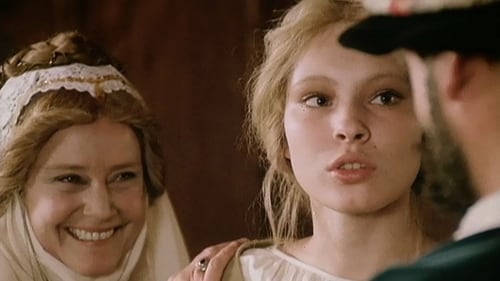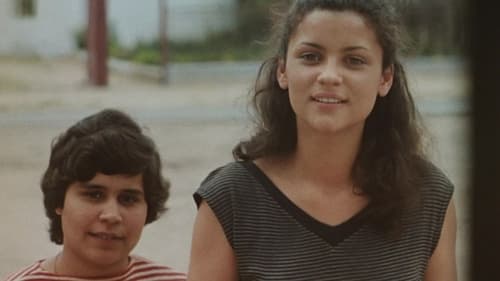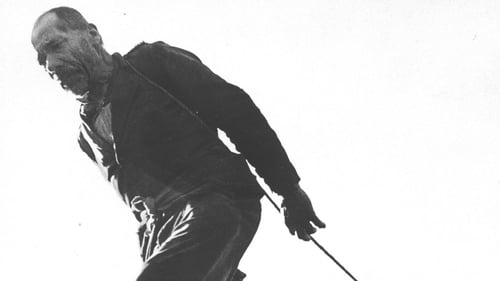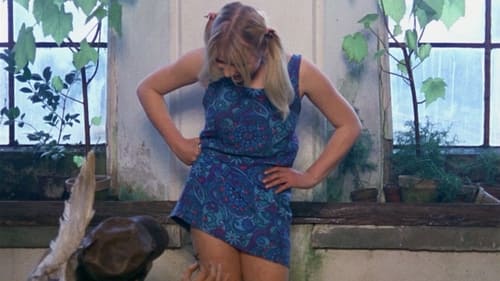
Editor
The drama called I Love, You Love was made in 1980 but because of the absurd ideological ban, the film entered cinemas nine years later. Pišta is an unmarried man who works at a freight wagon which carries letters and parcels. Alcohol helps him to overcome his handicap of being short and not good-looking. He wishes he had a woman, but the woman he really wants, ageing Viera who reloads the cargoes, has a soft spot for another man. So, Pišta has nobody and nothing, except for senile mother who sometimes fails to recognize him. The film received Silver Bear for Best Director at the International Film Festival in Berlin.

Editor
This film is a psychological study of a woman who chooses solitude as an escape from the duplicity and emotional barrenness of the men around her.

Editor
A story of a young student of medicine, who arrives in a small mountain village after being accused for carrying out illegal abortion. The film reflects the moral decline of the society, where stealing in secret and making compromises against one's beliefs make up mundane reality. The filmmakers went to perhaps the furthest possible limits in terms of allowed social criticism in the 1980s. The negative picture is enhanced by its rural setting, since the Slovak village had been traditionally associated with strict morals and conservative values.

Editor
When a selfless king learns of a beautiful princess in a neighboring kingdom who callously turns down every suitor with an insult, he tries his luck to no avail. So, he hatches a plot with her father in which the princess is married to him, in disguise as a beggar, so he can teach her lessons about humility and compassion.

Editor

Editor

Editor

Editor

Editor
Jakub, a dreamer and budding magician, juggles between parcels and services rendered to the villagers. His eyes cross that of the beautiful gypsy Jolanka. Together, they will try to live a first and big love, despite the pressure of their respective communities.

Editor

Editor

Editor

Editor

Editor

Editor

Editor

Editor

Editor

Editor
The second, and unfortunately. the last feature film made by a unique talent among Slovak filmmakers, Elo Havetta, is one of the most originial pictures of Slovak cinematography. The film was conceived as a paraphrase of Vincent Šikula's prose, the tragic episodes of which screenwriter Lubor Dohnal and Havetta composed into a dramatic story. The main characters are veterans coming home from the First World War. And while they feel a need to find A home and settle down, they are also driven by a passion for a vagrant's free life.

Editor

Editor

Editor
A visual essay on the forgotten parts of Eastern Europe. The outskirts here are a Slovakian town in the Tatra Mountains. Though censored for 17 years, Dusan Hanáks poetic visual essay is not a political or even social film. It goes to far deeper and more fundamental levels of human experience. Inspired by the photographs of Martin Martinek, the films power lies in its unusual portraits of people whose raw visual beauty radiates from their very souls.

Editor
Art-naive gallery of craft guilds of Haban ceramics in Slovakia.

A story of a man threatened by a fatal illness evaluating his life (the number 322 in the film title stands for the diagnosis of one kind of cancer). He understands his illness as a form of punishment for his cruel deeds in the 1950s. In the face of reality and his efforts to cleanse himself he hits a barrier of indifference, lack of interest, and individual and collective selfishness. He has to find his own reconciliation with his illness and his past and present life.

Editor
A story of a man threatened by a fatal illness evaluating his life (the number 322 in the film title stands for the diagnosis of one kind of cancer). He understands his illness as a form of punishment for his cruel deeds in the 1950s. In the face of reality and his efforts to cleanse himself he hits a barrier of indifference, lack of interest, and individual and collective selfishness. He has to find his own reconciliation with his illness and his past and present life.

Editor
One of the lead characters is Maria, an inn keeper; always a bride but never a wife. She meets the newcomer Pierre, who disturbs the peace of the small village and teaches the locals how to enjoy life. The film is full of fireworks of lovely colours, and a warm feeling. It is like a carousel of humour and human situations that carry us away, from the very first frame to the unexpected ending, making the viewer laugh gaily. Using a mosaic approach to the traditional narrative line, the film director creates a picture of fairly anarchic glee. “Celebration in the Botanical Garden” is a world of fantasy, full of summer fun, good humour and delight. E. Havetta´s debut was inspired by naïve art, French impressionism, and silent slap-stick as well as Western Slovakian folk traditions.

Editor
Animated short inspired by 'Yellow Submarine'.

Editor
A man changes his behavior according to the term of the year.

Editor
A documentary about lamentation songs of Bulgarian funeral rites.

Editor
Ethnographic documentary about customs and ceremonies connected with death in a Bulgarian village.

Editor

Editor
A traditional Advent mass filmed in a church in the historical town of Spisska Sobota (Northern Slovakia), featuring authentic liturgical texts and songs.

Editor

Editor
An animation short by Viktor Kubal.

Editor
A documentary féerie about the problems with tourists from abroad. How foreigners “invade” our homeland. A series of minute observations on life under so-called “real socialism” provokes sparkling ironic and satirical commentary—a broadside against the bankrupt Communist system.

Editor

Editor

Editor
A documentary about the cycle of human life and the eternity of nature.

Editor
As a peasant cultivates his land, he pulls technological progress from out of a molehill: railways, highways, mechanization... The fertile lands will be buried under the merciless pressure of technological progress until they become an urban jungle.

Editor
Documentary illustrating the classic principles of Byzantine iconography on the examples of sixteen icons from a museum of ancient Greek art.

Editor
A film about Slovak icons painted in the period of the late 15th to the early 19th centuries, when original Byzantine icon was ending in Slovak folk art.

Editor
Documentary film about apprentice youth about to enter real life.

Editor
Poetic documentary about works of several artists from ideas to “births” of works of art.

Editor
A documentary about the artistic and verbal expressions of mentally ill people.

Editor

Editor
A movie built up of three stories about life in a small Slovak town. The Prosecutor: the district attorney is a jazz orchestra soloist at the same time and that is much disliked by the local provincial society. The Defender: is about a young doctor's relation to his patient, who is open about his reactionary opinions. The Judge: it is only after long years that the old judge realizes that his own marriage is in jeopardy.

Editor

Editor

Editor

Editor

Editor
A comedy about a lost inheritance, love and a red umbrella, which, according to a local legend, belonged to St. Peter himself.

Editor

Editor

Editor

Editor

Editor

Assistant Camera
















